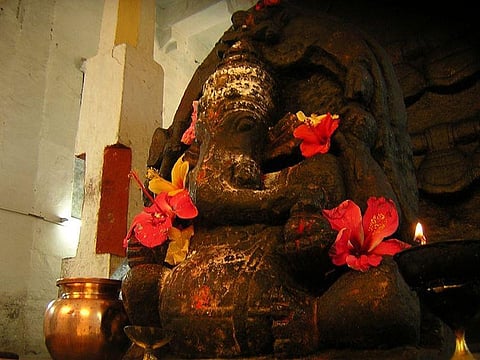
- Home
- न्यूजग्राम
- NewsGram USA
- India
- World
- Politics
- Entertainment
- Culture
- Lifestyle
- Economy
- Sports
- Sp. Coverage
- Misc.
- NewsGram Exclusive
- Jobs / Internships

New Delhi, August 31, 2017: Sikkim became the 2nd North Eastern state (after Assam) to ban Cow Slaughter, the bill was passed by Sikkim Democratic Front (SDF) which is a part of the BJP's North East Democratic Alliance (NEDA). On August 29, the Bill was passed in the State Assembly and it prohibits the killing of cows and its female calf across the state.
The legislation was tabled by Somnath Poudyal, the state Animal Husbandry Minister and it was titled Sikkim Prevention of Cow Slaughter Bill, 2017.
As per the Sikkim Prevention of Cow Slaughter Bill, 2017, a cow has been defined as a dry cow, milking cow, calf and under the Act it will be a non-bailable offense and cognizable offense. If anyone is found slaughtering a cow in Sikkim, he/she will face imprisonment of not less than 2 years (it can be extended to 5 years) and the offender will have to pay a fine of minimum Rs 10,000. A repeat offender will have to face rigorous imprisonment for at least 5 years (it can be extended to 7 years) with a fine of not less than Rs 10,000.
Chief Minister Pawan Chamling, during the discussion on the Bill on 29th August, said that the protection of cow has become vital due to the "need of inputs for organic farming" in Sikkim.
Chamling said, "The government wants to invoke a humane, ethical and sustainable alternative to taking care of aged and unproductive cows in gaushalas (cow sheds)." The Chief Minister said that the state government will construct 2 gaushalas for this purpose.
Until now, other North Eastern states have not banned cow slaughter. However, in Assam, the slaughter of cows is banned with one exception- if 'fit for slaughter' certificate is issued to them, those cows will be slaughtered at designated places. Though, they are not strict enough as cow slaughter is not a cognizable offense.
In Sikkim, the majority Nepali Hindu population doesn't consume beef but the native population of Bhutias and Lepchas traditionally do.
Poudyal talked about how the cow is considered as a mother in India for the dairy industry, agriculture industry, and the mankind. He said, "The people of Sikkim consider the cow as sacred and have an emotional attachment to it."
Poudyal gave some other reasons as well:
He added, "The government has deemed it necessary to frame a legislation to prohibit and prevent the slaughter of cows and its female progeny in the state of Sikkim."
The new legislation provides an exception- for the cows suffering from contagious or infectious diseases. If one wants to slaughter an infected cow, a certificate is required from the competent authority. A designated place will be chosen to slaughter such a cow which will be according to the rules set in the Act. The dead body of the cow should be disposed of or buried according to the rules prescribed in the new Act.
NewsGram is a Chicago-based non-profit media organization. We depend upon support from our readers to maintain our objective reporting. Show your support by Donating to NewsGram. Donations to NewsGram are tax-exempt.
Click here– www.newsgram.com/donate
